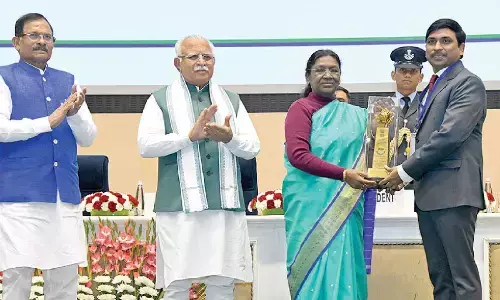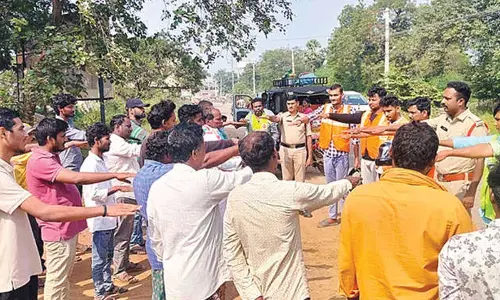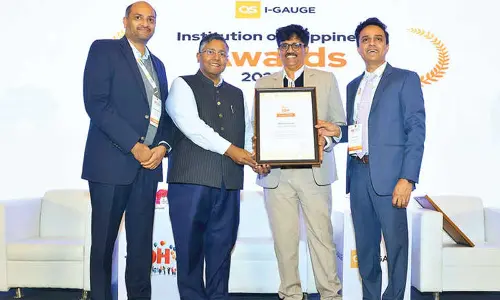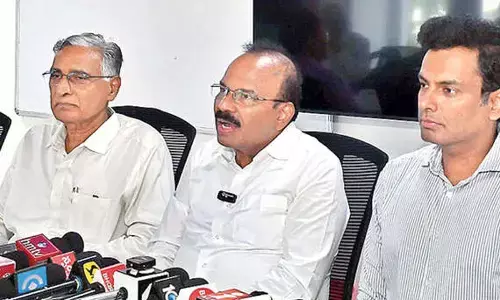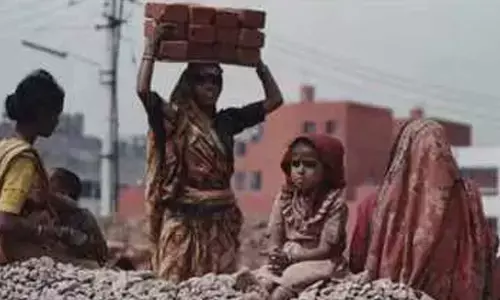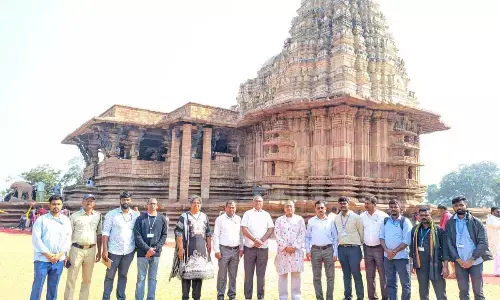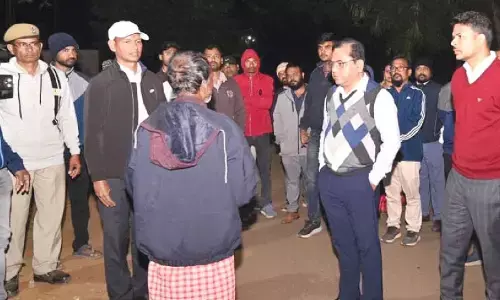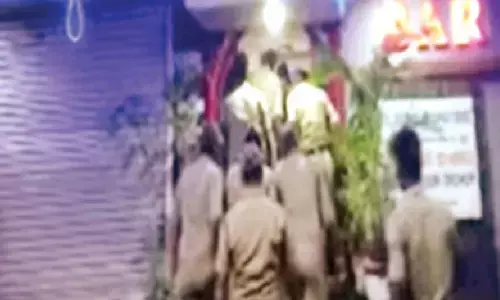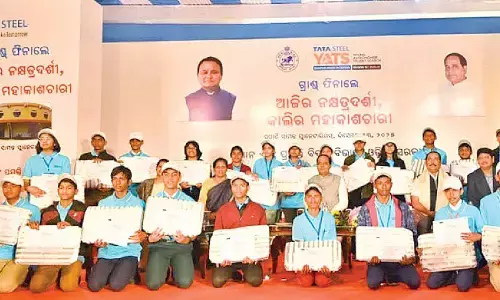On constant Modi-fication
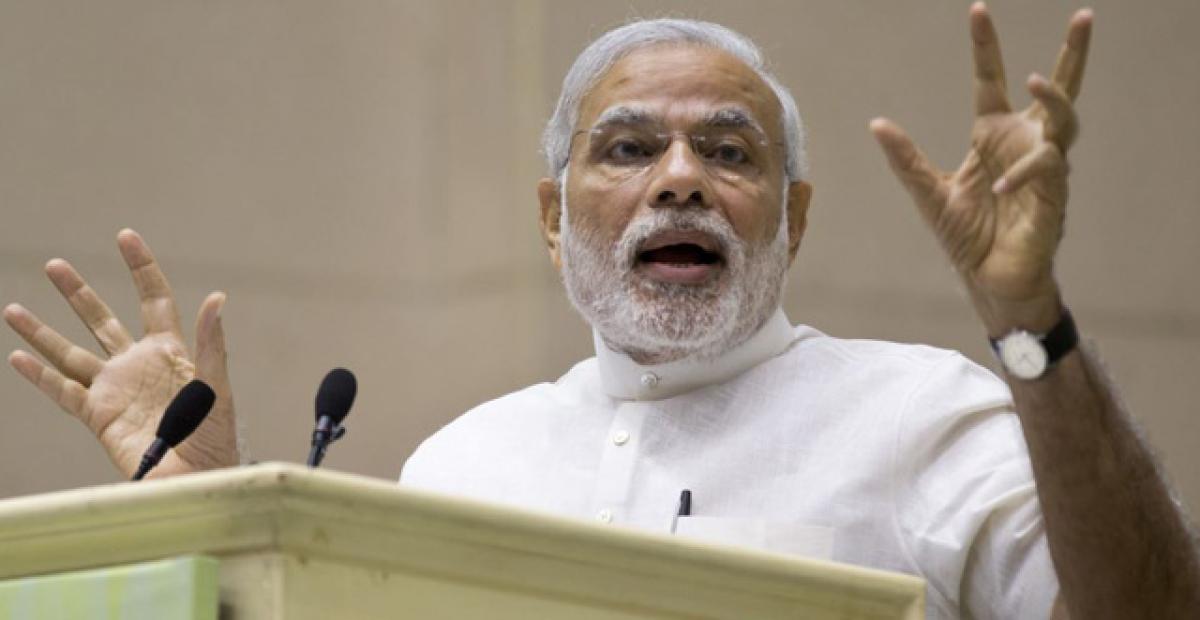
On constant Modi-fication. Prime Minister Narendra Modi receives regular feedback on what he has said and done. He thinks and acts upon it, if reports quoting officials close to him are to be trusted.
Prime Minister Narendra Modi receives regular feedback on what he has said and done. He thinks and acts upon it, if reports quoting officials close to him are to be trusted. Officials say that he is constantly applying course-correction. If that is true, he is unlikely to repeat a serious mistake of telling audiences abroad things like for the past sixty years, his countrymen anywhere were “ashamed of being called Indians”.
.jpg)
If he meant the times when India was seen as poor by the successful among the diaspora who may have shunned the Indian tag, no such clarification came from official quarters. Hence, the observation was perceived as sweeping, and one that demeaned all predecessor governments and prime ministers, including Atal Bihari Vajpayee. Modi hit and hurt people all across the nation.
He may be right in claiming credit for righting many a wrong of his predecessor governments. He may even be okay in claiming to have rallied the nation that was hit by scams, anger and inertia. But he ought not to have engaged in belittling the Opposition, especially when abroad. It does not behove the high office he occupies, Now hopefully, we are told, he realises it.
His love affair with the diaspora is well-known. He has been addressing them in a kind of returned-gesture for the support they lent during his election campaign last year. He gathers audiences by the thousands, including non-Indian hosts who want to hear the orator in person. This happened in Bangladesh, where there have been reservations about him based on the 2002 Gujarat violence under his watch. Many critics mellowed, if not turned fans.
But now, the possible diplomatic pitfalls in his dealing with the diaspora are showing. Modi cannot be unmindful of causing imbalances in relationship with the host nations. A gung-ho diaspora could also become vulnerable to local threats and pressures, if not always physical, to their economic and social well-being. In countries where the diaspora are politically active, too much of Modi can be divisive and even counter-productive. The foreign arms of the BJP and other “Parivar” organisations need to exercise restrain on this count.
His “Hindu nationalist” tag may be fine to articulate his political stance at home by foreign analysts. But it can draw negative vibes, since the countries he visits, or may be planning to visit, do not always perceive it positively. It was fine for him to pray at the Pashupatinath Temple in Kathmandu and engaged with the Hindu priests when he visited Nepal last year, although he drew criticism from different quarters for different reasons.
Some thought he was engaging the vast majority, ignoring the rest and others were sore at his not engaging the erstwhile Nepalese royalty, considering the sympathy and proximity that the Sangh Parivar has felt towards it in the past. His Tweet about being the first to inform Nepalese Prime Minister Sushil Koirala, who was in Thailand, about the earthquake in Kathmandu has been a communication and diplomatic disaster.
It contributed to the anti-India sentiment when India was actually leading the massive relief operations that he had ordered. The 24X7 coverage by Indian TV channels compounded the damage. Since India withdrew from relief work along with other foreigners, Nepal and its repeated earthquakes have simply gone off the Indian media radar, sending, yet again, a negative message. There is the danger of falling between the two stools.
Reports indicate that in future, Modi will not interact with people of Indian origin separately on all his foreign tours, especially in the neighbourhood because of the potential impact such events may have on bilateral equations. If the people of “Hindu Nepal” are sensitive, so are the Bangladeshis, overwhelmingly Muslim or Buddhist majority Sri Lankans. Modi’s office is right in realizing that sensitivity. Although there were requests for him to interact exclusively with an audience of Hindus in Dhaka, it was quietly declined.
The minorities in these countries, even if they look to India, are best left to tackle the issue they confront. Vociferous support from New Delhi is neither needed, nor desirable. It could only make them more vulnerable from locals who engage in a brand of patriotism that is unconcealed anti-Indianism. The Indian tag becomes a liability. This is true of all of India’s neighbours, where people loosely identify themselves with India. Smaller in size, numbers and resources, even if they depend upon India, they dislike being reminded of it.
It causes problems in bilateral relations. too. The host governments resent this. On the ground, New Delhi can do little by way of ‘protection’. It can’t tackle the problems of the diaspora from a long distance without being accused of interference. Only a powerful United States does it – often, with disastrous results. Hence, be it Dhaka or his visit to Jaffna in Sri Lanka – and if and when he visits Pakistan or Afghanistan, his message has got to be to emphasise on the internal unity of the people. Addressing local diaspora groups could only add to their security concerns.
One is reminded of an incident in Malaysia, located at some distance and not an immediate neighbour. Home to 2.1 million Indians, a bulk of them Tamil Hindus, Malaysia prides in being seen as multi-ethnic and multi-religious. But sections of the Hindus there strongly feel the socio-economic discrimination from the majority Malays and the economically powerful ethnic Chinese.
A question about the ‘plight’ of the Tamil Hindus caused a piquant situation at the joint media conference during the then Prime Minister Manmohan Singh’s visit. The host premier intervened, before Singh could respond, saying that this was “Malaysia’s internal affairs”. Dr Singh said he was confident that any problems confronting the ethnic Indian community would be resolved by the government that they elect.
Placed in that position, Narendra Modi’s response could not have been different. The Malaysian example is significant because it was in erstwhile Malaya and Singapore that India’s policy towards its diaspora was laid, even before Independence, by Jawaharlal Nehru. Told of the plight of the Indians there, Nehru visited them thrice, only to help them organize themselves into trade guilds, workers union and community bodies.
He did become the titular president at their insistence, but left their organizing to the local leaders. As India’s first prime minister, he articulated that Indians, wherever they are living in their chosen homes, must stay loyal to their respective societies and governments and work for their well-being. Any Government of India cannot deviate from this broad principle.








